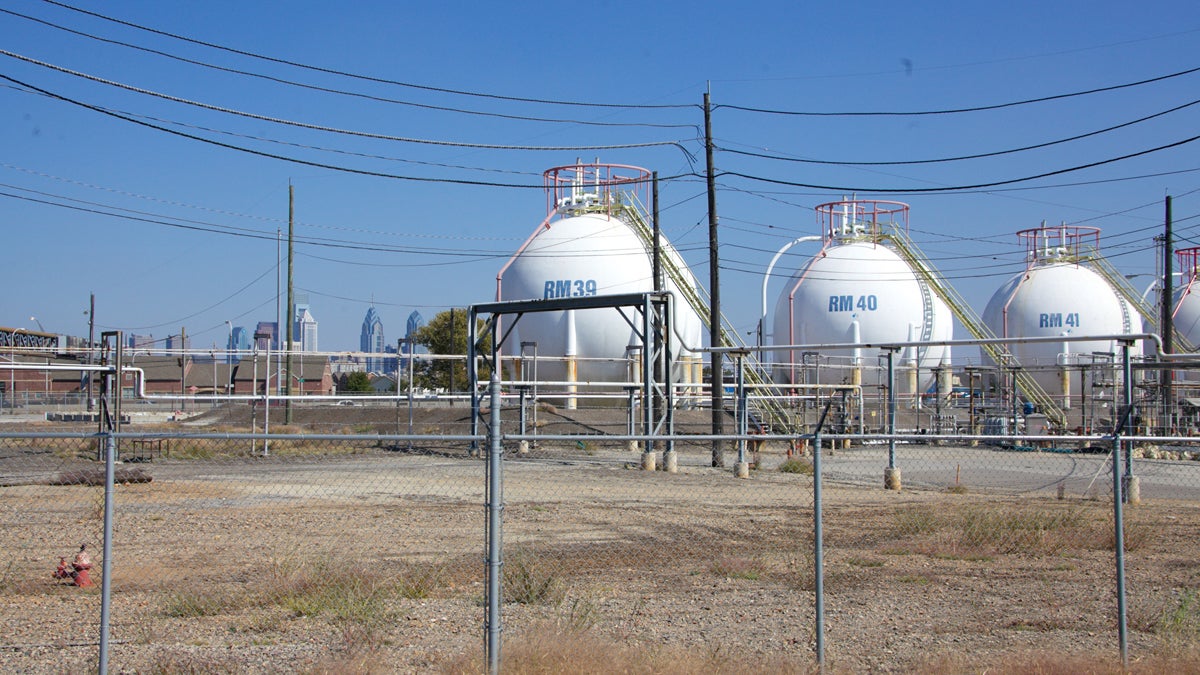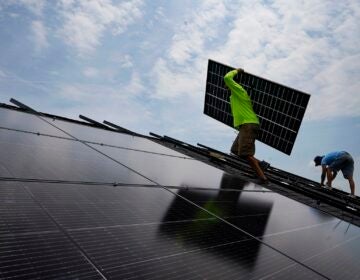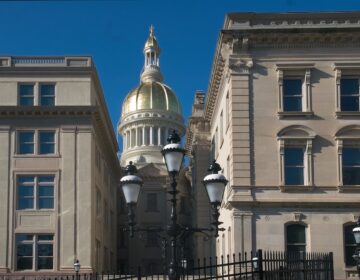Philly refiner’s push to maintain ban on U.S. crude oil exports goes against trend
Listen
The largest oil refinery complex on the eastern sea board (Nathaniel Hamilton/for NewsWorks)
In early 2012, the refining business in Southeast Pennsylvania was on life support until a glut of cheap American oil and natural gas revived the industry. Now, oil producers want to sell to higher bidders overseas and some lawmakers are pushing to lift a longstanding ban on crude oil exports.
The ban dates back to December 1975 when Congress passed the Energy Policy and Conservation Act in the wake of the Arab Oil Embargo. The law forbids exports of crude oil, but gives the president power to grant exceptions if it would benefit the country.
“It was a period of tumult in energy,” said Philip Verleger, an energy economist based in Colorado. “The whole theory was U.S. oil for U.S. consumers.”
Forty years later, as domestic production surges, the conversation is changing. But Phil Rinaldi, CEO of Philadelphia Energy Solutions, is among those who want to keep things status quo, as far as the ban on oil exports is concerned.
Once slated for closure in August 2012, PES has become the single largest consumer of crude oil from North Dakota, where the Bakken Shale is producing less than 1 million barrels a day.
“That’s the America that I like,” Rinaldi said. “The one where we are treated like a colony and we take our natural resource and we ship that overseas, allow someone overseas to add value to it and then sell us back higher-priced products, that doesn’t sound like that’s progress for the country.”
Rinaldi admits it’s also good for his bottom line. Reuters reported earlier this month that Rinaldi participated in a call led by New Jersey-based refiner PBF Energy to garner interest in a lobbying effort against lifting the ban. Delta Air Lines, which now owns a refinery in Delaware County to make its own jet fuel, was also reported by Reuters to be on the call.
Rinaldi won’t say whether he participated in the call or whether he intends to pursue a formal lobbying campaign, but he told StateImpact Pennsylvania he is “never going to be shy” as the debate heats up in Washington.
However, it’s clear he and other refiners will be in the minority, as most of the oil industry wants to lift the export ban.
Casting it as economic vs. political issue
“We fundamentally believe that it’s the markets that should make these decisions, not political decisions that were made 40 years ago,” said John Felmy, chief economist with the industry trade group, the American Petroleum Institute.
Domestic crude oil production is approaching historical highs of less than 10 million barrels per day, levels not seen since 1970, according to the Energy Information Administration’s annual Energy Outlook.
Many American refineries aren’t designed to process the kind of light, sweet crude oil that’s coming out of North Dakota, the kind at the heart of Philadelphia Energy Solutions’ business plan. Refiners in Europe are thirsty for it and willing to pay more.
“We need to go back and rethink what it’s like today,” Felmy said. “We’re no longer in a period of energy scarcity. We’re moving into an area of energy abundance.”
Much of the debate in Washington will center on what’s going to happen to oil prices. Refiners such as Rinaldi argue lifting the ban will make crude oil more expensive, ultimately raising prices at the gas pump. The American Petroleum Institute says if oil prices go up, it will stabilize the market and encourage domestic producers to keep drilling.
“It’s more like moving money from one industry to another industry,” said Verleger. “It’s just a standard economic battle or elbow wrestling match.”
Oil producers see an opportunity to make more money and they’re going for it — at the expense of certain refiners. Verleger doesn’t think it will pay off, but consumers might win out in the end.
“There’s almost in this a ‘be careful what you wish for, you may get it’ element and if they lift the ban on exports, crude prices could drop down and consumers could see lower gasoline prices,” Verleger said.
With a divided Congress facing midterm elections, the battle is bound to be long. Having the debate at all shows just how much about America’s energy situation has changed in 40 years.
This story was originally published on StateImpact Pennsylvania, a joint energy and environmental reporting project by WITF and WHYY.
WHYY is your source for fact-based, in-depth journalism and information. As a nonprofit organization, we rely on financial support from readers like you. Please give today.




